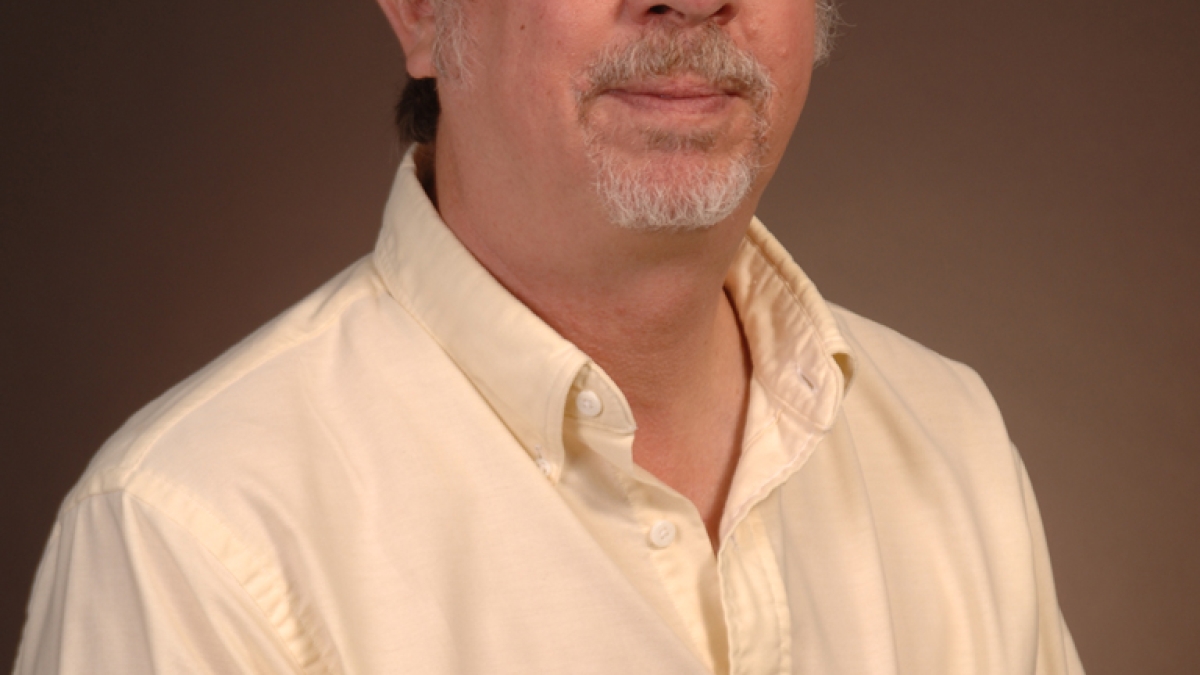Professor receives prestigious Guggenheim Fellowship

The John Simon Guggenheim Memorial Foundation has awarded fellowships to a diverse group of 181 scholars, artists, and scientists in the United States and Canada, in its 88th annual competition.
One of those 181 winners is Stephen R. Bokenkamp, a professor of Chinese in the School of International Letters and Cultures, as well as a professor of religious studies in the School of Historical, Philosophical, and Religious Studies. Both schools are situated in ASU's College of Liberal Arts and Sciences.
Bokenkamp plans to use his Guggeheim funds as support to complete a translation of the “Zhen’gao” or “Declarations of the Perfected,” a sixth century CE Chinese book of celestially-revealed material.
“The book centers on the poems, instructions, and meditation methods received by the Daoist Yang Xi (330-ca. 386) and shared by him with his patrons and students in a single family, the Xus,” Bokenkamp said. “These fragments of revealed material were collected by the eminent scholar and Daoist Tao Hongjing (456-536), who added a history of the participants and a scholarly apparatus explaining the texts.”
“Declarations” deserves translation into English for four major reasons, Bokenkamp believes.
“First, it stands as testimony to important aspects of Daoist history and practice,” he said. “Before the second half of the 20th century, many scholars regarded Daosm, which is China’s own organized religion, as merely a pale Chinese imitation of Buddhism.”
But thanks to “Declarations,” a “firmly dated” work, “we now know that Daoism was a revealed religion, scripturally based, with ecclesiastical organization, ritual practice, and codes of morality dating back to the Celestial Masters church of the second century CE and intimately involved in the cultural history of China,” Bokenkamp said.
The “Declarations” played an as yet unappreciated role in the development of Chinese literature, and they they provide new perspectives on the history of the Jin dynasty,” Bokenkamp said. “And, they provide “our sole intimate view of family life from this period of Chinese history.”
Bokenkamp began his study of the Chinese language during his service in the U.S. Army from 1970 to 1977. He first attended the rigorous basic (47 weeks) and advanced (37 weeks) courses in Chinese Mandarin at the Defense Language Institute in Monterey, California.
Following his service, he attended the University of California, Berkeley, where he earned his master's degree in 1983 and his doctorate in 1986, completing his graduate work in a record nine years’ time.
Bokenkamp has taught at the University of Tennessee and Indiana University. He has received numerous scholarly fellowships and awards to further his study of medieval Chinese religions.
His first book, “Early Daoist Scriptures,” offers an overview on early Daoism and present its most important scriptures in translation for the wider scholarly community. His second book, “Ancestors and Anxiety: Daoism and the Birth of Rebirth in China,” seeks to gauge the extent to which Buddhism was inspirational in the formation of early Daoism.
The Guggenheim Fellowship program was established in 1925 by Simon Guggenheim, then a U.S. Senator from Colorado, and his wife, Olga, in memory of their elder son, John Simon Guggenheim, who died in 1922 at the age of 17.
The fellowships, first offered to Americans and Canadians, and later to residents of Mexico and Central and South America, were intended to "add to the educational, literary, artistic, and scientific power of this country, and also to provide for the cause of better international understanding,"
To date, more than 17,000 scholars have received more than $298 million in grants. Twenty-five ASU faculty have received Guggenheims, beginning in 1960 with James Canright, professor of biology.
Simon Guggenheim was born in Philadelphia and attended Peirce College before moving to Pueblo, Colo., where he worked as chief ore buyer for his father’s mining and smelting operation, M. Guggenheim’s Sons.
Guggenheim moved to Denver in 1892. He married Olga Hirsch on November 24, 1898, at the Waldorf-Astoria Hotel in New York. To celebrate their marriage, the Guggenheims provided a Thanksgiving dinner for 5,000 poor Manhattan children, beginning a tradition of philanthrophy that continued throughout their lives.